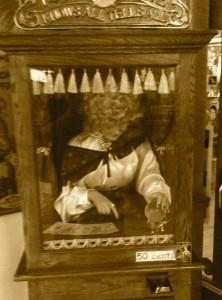A scene from early on, illustrating one of the dangers of the wilds near Tabat: parasitic fairy bites.
The next morning, Teo did not like the priest’s look. His hands were clammy but his face was red as though with blushes. His forehead under Teo’s hand was scorching hot. After a few minutes of hesitation, Teo examined the spot he thought might be a Fairy bite.
His suspicions were confirmed by the lump that lay under the surface. He’d seen the alta treat such injuries. That would be best if she did it, but he didn’t think there was time enough for that. The parasite would grow and begin to control its host’s nervous system, making it little more than an empty shell, moving about to suit the creature’s needs, until the fairy was finally born. It would not emerge from the wound that shifted under Teo’s fingers. No, it would burrow deep, then upward, till it found itself in its host’s brain, which it would devour until sated. Once it was ready, it would eat its way out through his eyes or the soft tissues of his mouth. No, it would have to be removed now, before it burrowed any deeper.
He built the fire as high as it would go, and put the wineskin from the priest’s pack to the side near it, where it could warm without burning. He took the tiny kettle and filled it with water before sifting in the mixture of dried fish and tea that was the last of the priest’s chal; this far on the journey, he’d nearly run out, and he’d confided in Teo that he was saving it for some special occasion, but it was the most sustaining and easily fed to a patient thing that Teo could find in the pack. For what he had in mind would definitely require sustaining.
He had not seen it done, but he had listened to stories. Everyone was taught the signs of a fairy bite early on, and what to do if caught away from the village with one.
He prayed the priest would stay asleep during the operation. That would make things easier. But as his knife poised above the mark, Grave’s eyes opened.
“I have to do this,” Teo said to him, afraid that the priest would take this as some attempt to escape. “You have a Fairy egg in you, and I need to take it out before it hatches and starts eating inward.”
Grave’s lids fluttered, but he said nothing. His forehead was red with fever, and Teo wondered if the man even saw him. How would he react when he felt the cut of the knife? Would he thrash around, or think himself attacked and attack Teo in turn? He hesitated, not sure what he should do.
The words were barely audible, like a breath of breeze escaping the priest’s dry lips. “Give me something to bite on, first,” he whispered. “I do not wish to crack a tooth as well.”
Teo took a piece of leather and rolled it into a tight cigar, putting it sideways between the priest’s lips. “This will hurt,” he warned, and felt the words’ foolishness as soon as they left his mouth. Of course the priest knew that this would hurt, otherwise he would not have asked for something to bite down on during the operation. Teo took his own deep breath, steeling himself, and cut.
It was not a simple job. Blood welled up in the cut, obscuring the flesh, and Teo had to keep pouring water over it to clear it, eliciting a hiss of pain from the priest each time. But otherwise he remained silent, jaws clenched around the piece of leather.
Gently Teo sluiced the wound again as he peered into it. There. As gently as he could, he eased the knife’s tip into the dark spot he could see. The flesh resisted for a moment “” he should have sharpened the knife even more beforehand “” before giving way with a tiny, delicate pop. The priest inhaled raggedly.
That would kill the egg, perhaps, but it was not enough. Left inside, the creature would rot and the flesh around it would follow its example until the priest would have to face the same choice Futu once had: to have the limb cut away or die.
Carefully, carefully, he used the thin tip to open the egg. Clear fluid drained out, and then there was something struggling at the end of the knife blade, bumble-bee big, fighting to preserve itself and burrow further.
He jammed the tip into it. Muscles spasmed in the priest’s face but he remained rigidly still. Teo hooked the loathsome thing out and took no time to contemplate it as it hung mewling and wailing on the end. He flung it into the fire as quick as thought and with a last whimper it curled into ash.
He washed the wound once more with water, checking to make sure there were no more traces of the creature. Then, taking the wineskin from where it lay near the fire, he directed the hot wine across the flesh to keep it from putrefaction. Tendons of agony twisted in Grave’s face; when Teo took the leather from between his lips, he saw that it had been bitten almost entirely through.
He took needle and thread from the priest’s kit and took four careful stitches in the skin, tying it back together to close that painful looking mouth of flesh. All the time the priest was silent and still.








